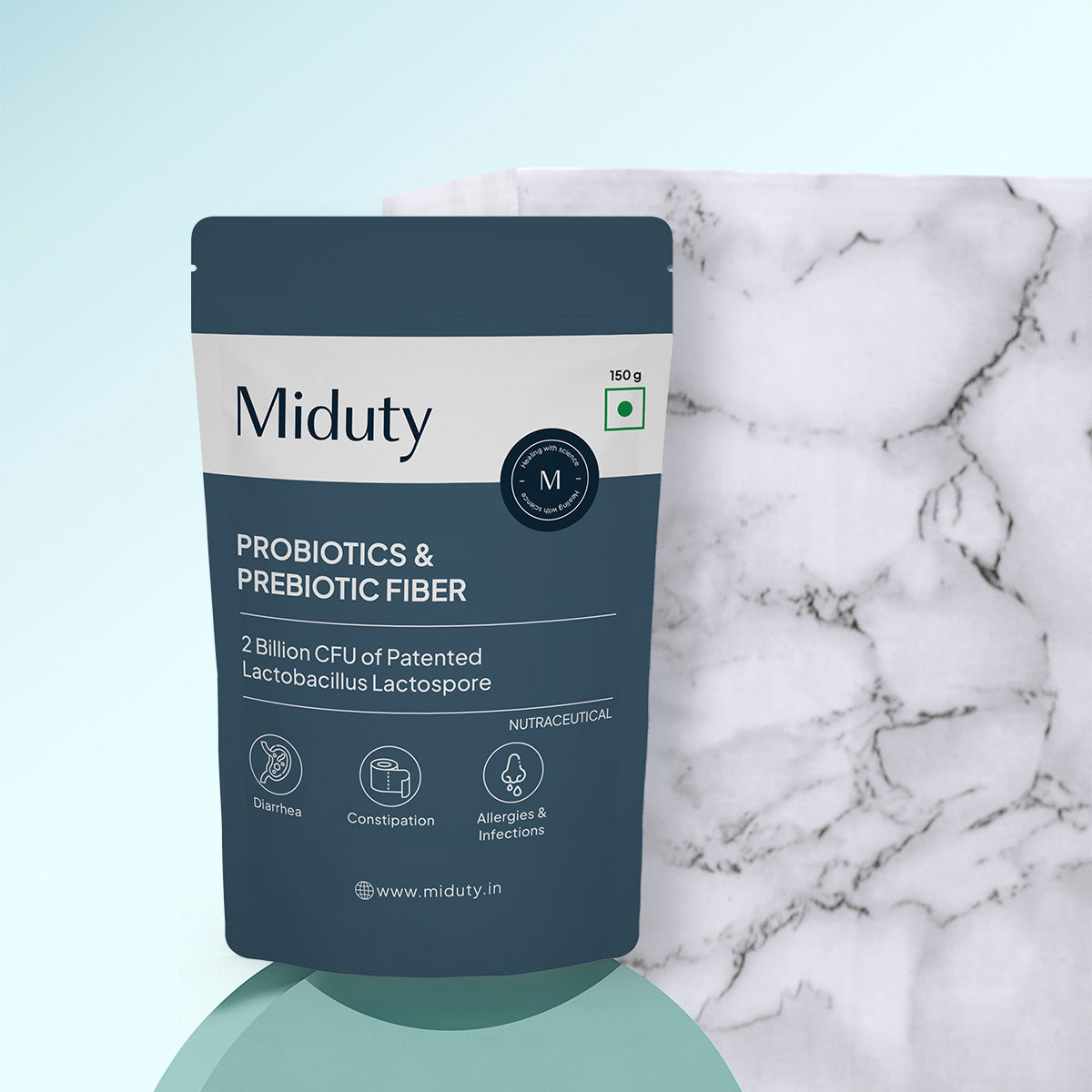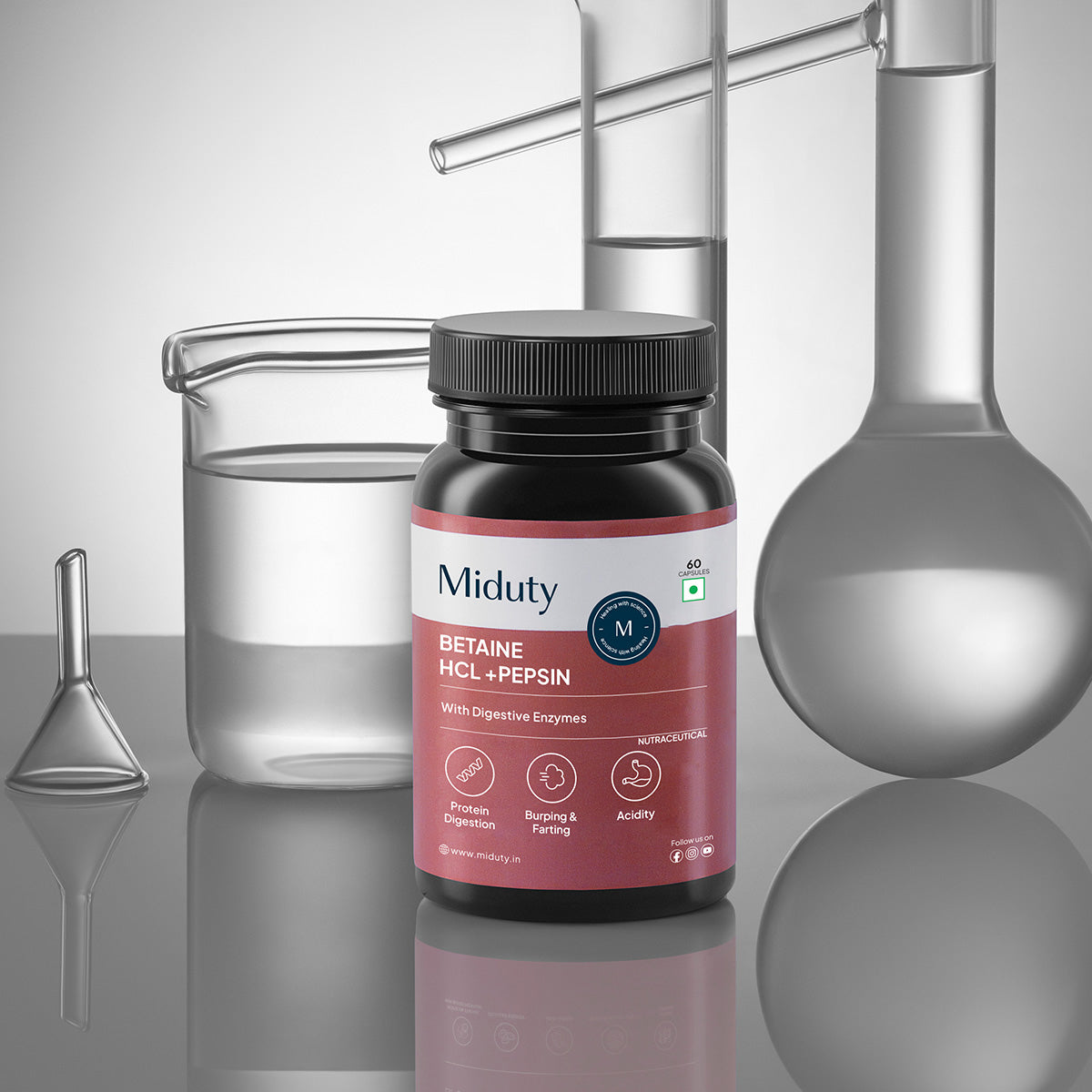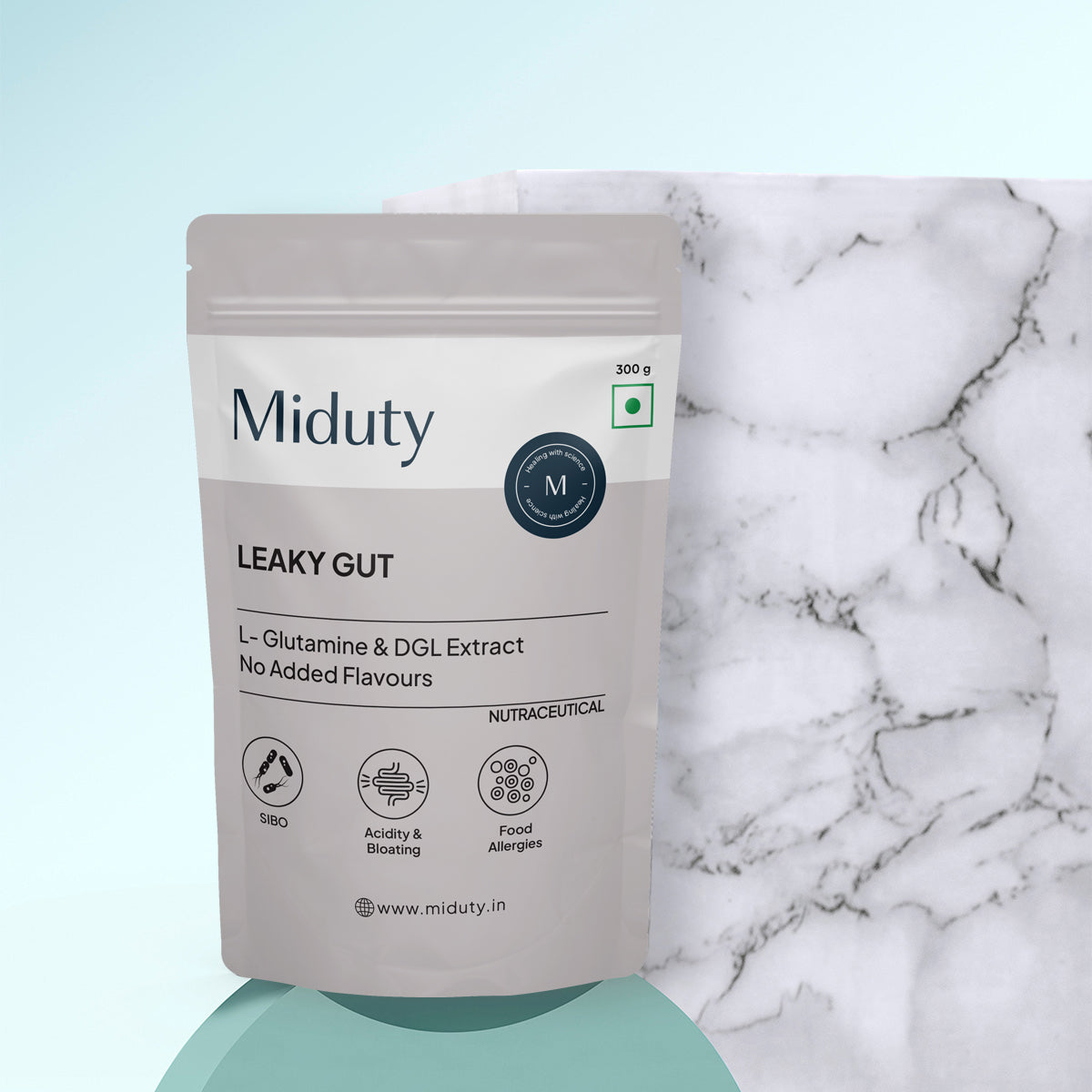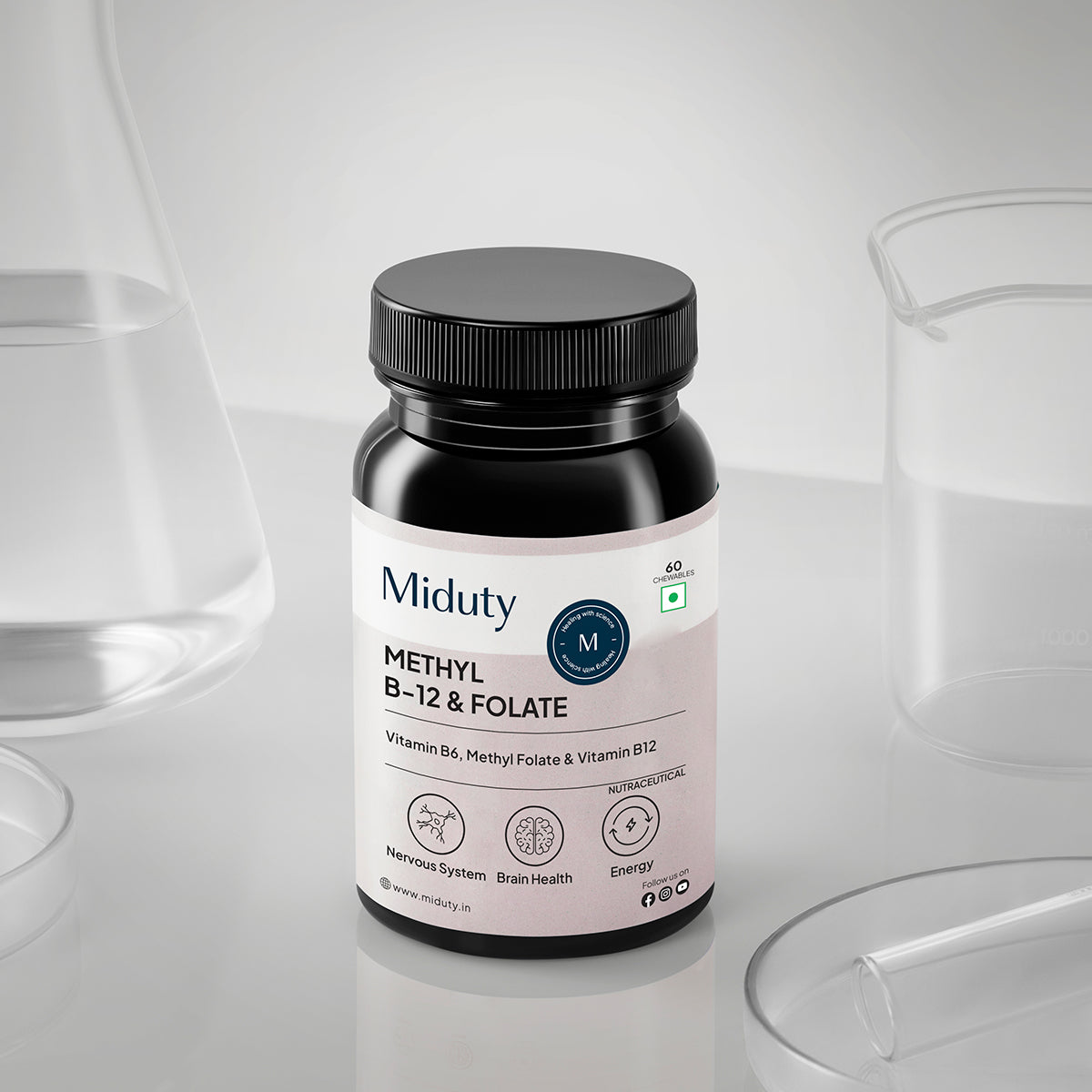
Magnesium for Constipation: How It Works, Best Types and Dosage
Key Takeaways:
1. Magnesium is a Natural Solution for Constipation: Unlike harsh laxatives, magnesium works with your body by drawing water into the intestines and relaxing digestive muscles, promoting smoother, more natural bowel movements.
2. Magnesium Citrate Works Fast for Occasional Relief: This form acts within a few hours, making it ideal for short-term constipation. However, it shouldn't be used daily due to the risk of dehydration or electrolyte imbalance.
3. Magnesium Bisglycinate Support Long-Term Gut Health: Magnesium bisglycinate is a gentle, highly absorbable form of magnesium that supports digestion and helps maintain a healthy gut lining for long-term digestive wellness.
4. Food Sources Can Boost Magnesium Naturally: Leafy greens, nuts, seeds, and even dark chocolate are rich in magnesium, helping you maintain healthy digestion without relying solely on supplements.
5. Use Magnesium Wisely and Know When to Seek Help: Start with low doses, stay hydrated, and consult a doctor if constipation persists or worsens, especially if accompanied by pain, bleeding, or sudden bowel changes.
Constipation is more than just a bathroom issue. It's uncomfortable, frustrating, and can throw your whole day off. If you've ever spent more time than you'd like waiting for relief, you're not alone. Millions of people experience constipation at some point, and for some, it becomes a regular struggle. Now, what if there were a natural, science-backed solution that didn't involve harsh laxatives or weird teas? That's where magnesium steps in.
Magnesium might not be the flashiest mineral, but it quietly works wonders in keeping your gut healthy. Most people associate it with muscle cramps or sleep aids, but few realize how essential it is for bowel regularity. It's a gentle, effective remedy that works with your body, not against it. If you're done with short-term solutions, magnesium might be the key your digestive system has been missing.
We're going to cover exactly how magnesium helps with constipation, which types work best, how to use it safely, and everything in between. Whether you're someone who struggles occasionally or you've been dealing with chronic constipation for years, this guide will give you everything you need to know.
What Is Constipation?
We all recognize the discomfort, but what does constipation really mean? Medically, it's defined as having fewer than three bowel movements per week. However, it's not just about frequency straining, passing hard or lumpy stools, or feeling like your bowels aren't fully emptied are also signs of constipation, even if you go every day.
Chronic constipation can lead to bloating, gas, abdominal pain, and even long-term complications like hemorrhoids or anal fissures.
Common causes include:
- Dehydration
- Low fiber intake
- Lack of physical activity
- Certain medications (especially opioids and antacids)
- Stress and anxiety
- Hormonal changes
- Underlying conditions like IBS or hypothyroidism
And while short-term fixes like fiber supplements or stool softeners can help, they often treat the symptom, not the root cause. This is where magnesium offers a different approach.
Why Magnesium?
Magnesium is involved in over 300 biochemical reactions in your body. That includes everything from nerve function to heart health but one of its most underrated roles is in 'Digestion". Magnesium helps your intestines draw in water, softening stool and making it easier to pass. It also supports muscle relaxation, including the smooth muscles in your digestive tract. When your colon is relaxed, things move more efficiently. [1]
Magnesium, because when you're constipated, your colon can become sluggish and tense. Magnesium helps 'reset" your system by encouraging natural peristalsis (the wave-like contractions that move stool through your gut) and increasing water retention in the bowels.
Plus, many people are magnesium-deficient and don't even realize it. Due to poor diet, stress, and over-processed food, magnesium intake has dropped significantly in modern diets. Fixing that deficiency often leads to better bowel regularity and a whole lot more energy, too.
How Magnesium Relieves Constipation?
Magnesium works by increasing the amount of water in the intestines. This process is called osmosis. Essentially, magnesium draws water into the bowel, which helps soften stools and stimulate bowel movements. Magnesium also relaxes the intestinal muscles. If your digestive system is tight, tense, or inflamed, magnesium helps calm it down and get things moving again.
Regular use (in safe doses) can also train your body to get into a rhythm. Instead of constantly reaching for chemical laxatives, your system learns to rely on its natural signals again, with magnesium as the support.
A 28-day study in 34 women with chronic constipation showed that magnesium oxide improved bowel movements, stool consistency, and gut transit time. Overall, 70.6% saw symptom relief compared to 25% with placebo. [2]
Types of Magnesium Supplements
Not all magnesium is created equal. Different types have different effects on your body, especially when it comes to digestion. Let's break down the most common forms:
|
Type of Magnesium |
Best For |
Effectiveness for Constipation |
Notes |
|
Magnesium Citrate |
Fast relief |
Very effective |
Works quickly; can cause diarrhea in some |
|
Magnesium Oxide |
Occasional use |
Mild effectiveness |
Less absorbed; gentle laxative effect |
|
Magnesium Bisglycinate |
Ideal for daily supplementation and sensitive stomachs |
Highly Effective |
Gentle & Highly Absorbable, Supports long-term gut health |
|
Magnesium Sulfate |
Rapid emptying (Epsom salts) |
Highly effective |
Fast-acting; often used in enemas |
|
Magnesium Hydroxide |
Milk of magnesia |
Highly effective |
Common over-the-counter laxative |
Each type has its place depending on your needs. For constipation relief, magnesium citrate, magnesium bisglycinate, along magnesium oxide are typically the most effective choices due to their ability to draw water into the intestines and stimulate bowel movements more directly.
Magnesium Citrate: Fast and Reliable Relief
Magnesium citrate is one of the most effective options for quick constipation relief. It combines magnesium with citric acid, making it easy for the body to absorb. Once taken, it works as an osmotic laxative, pulling water into the intestines to soften stool and encourage movement.
How it works:
It typically produces results within 30 minutes to 6 hours, making it ideal for occasional constipation or bowel prep under medical supervision.
Dosage:
Adults usually take 10-20 fl oz (296-591 mL) of magnesium citrate solution. Always follow product directions or a doctor's advice.
Tips:
- Take it on an empty stomach for faster relief.
- Drink plenty of water.
- Stay near a bathroom; it can work quickly!
Magnesium citrate shouldn't be used daily. Overuse may cause dehydration or electrolyte imbalances. If you need it often, consider a gentler, long-term magnesium form.
Magnesium Bisglycinate: Gentle, Gut-Friendly Support
Magnesium bisglycinate is a highly absorbable and stomach-friendly form of magnesium that supports digestive health without causing a laxative effect. It works by relaxing intestinal muscles and reducing gut inflammation, promoting smoother, more regular bowel movements over time. Unlike harsher forms, it's designed for long-term gut balance rather than quick relief.
Best for:
- Those with sensitive stomachs or chronic digestive issues
- Long-term support for gut health and regularity
Dosage:
200-400 mg daily, preferably taken with meals. Benefits develop gradually with consistent use. It's gentle on the stomach, making it ideal for daily use without causing diarrhea or discomfort.
Magnesium Oxide: Mild but Steady Support
Magnesium oxide offers a slower, milder approach to constipation relief. It isn't absorbed well, which helps it draw water into the intestines more gradually. Think of it as a steady helper rather than a quick fix.
Best for:
- Those wanting mild stimulation without urgency
- Regular supplementation for digestive support
Dosage:
250-400 mg daily, ideally taken with food. Expect results within 1-3 days. While gentle, it may not be strong enough for severe constipation and can cause mild stomach discomfort in some people.
Natural Sources of Magnesium
If popping pills isn't your thing, the good news is you can absolutely get more magnesium through your diet. Many whole foods are naturally rich in this mineral, and incorporating them regularly can go a long way in keeping things moving in your digestive tract.
Here's a list of magnesium-rich foods to stock up on:
- Leafy greens (spinach, kale)
- Nuts and seeds (almonds, pumpkin & chia seeds, cashews)
- Legumes (black beans, chickpeas, lentils)
- Avocados
- Bananas
- Dark chocolate (yes, really!)
- Fatty fish (mackerel, salmon)
Recommended Daily Intake: [3]
- Adult men: 400-420 mg
- Adult women: 310-320 mg
- Pregnant women: up to 360 mg
How to Take Magnesium for Constipation?
Let's say you've decided to give magnesium a try. Now the question is: how should you take it for the best results?
Here's your step-by-step game plan:
1. Choose the right type: For quick relief, go with magnesium citrate. For daily support, try glycinate or oxide.
2. Start with a low dose: Begin with 200-300 mg and gradually increase as needed. Too much too soon can cause diarrhea.
3. Take it at night: Magnesium has a natural calming effect. Taking it before bed can help you relax and lead to a morning bowel movement.
4. Stay hydrated: Magnesium pulls water into the colon. Make sure you're drinking plenty of fluids to support the process.
5. Be patient: It may take a few hours (or days), depending on the type you use and your body's response.
Avoid these common mistakes:
- Taking it on an empty stomach if you have a sensitive gut
- Ignoring dosage guidelines
- Using magnesium every day without breaks or medical advice
When to See a Doctor?
While magnesium is an amazing tool, it's not a miracle cure, and it shouldn't mask a more serious issue. Sometimes, constipation is a sign that something deeper is going on.
Call your doctor if:
- You haven't had a bowel movement in more than 7 days
- You're experiencing severe pain, vomiting, or bleeding
- You notice sudden changes in your bowel habits
- You've been relying on magnesium or other laxatives every day
- You have a history of IBS, Crohn's, or ulcerative colitis
Persistent or severe constipation may be linked to:
- Bowel obstruction
- Colon cancer
- Neurological conditions
- Hormonal disorders like hypothyroidism
Final Thoughts on Magnesium for Constipation
Magnesium isn't just another supplement gathering dust on your bathroom shelf. When it comes to digestive health, especially natural, gentle relief from constipation, it's one of the most underrated tools in your wellness arsenal. Whether you opt for fast-acting magnesium citrate, mild and steady magnesium oxide, or the calming support of bisglycinate, you've got options. You can tailor your approach based on your body's needs and how your gut responds.
Pair it with good hydration, fiber-rich meals, and movement, and you're not just treating constipation, you're building a lifestyle that supports long-term gut health. So next time your system slows down, consider reaching for magnesium. It might just be the relief you've been waiting for and the beginning of a much smoother routine.
FAQs on Magnesium for Constipation
Q1. Which magnesium is best for constipation?
Magnesium oxide is the most effective for relieving constipation due to its osmotic effect, which draws water into the intestines and softens stool. Magnesium bisglycinate, while gentle and highly absorbable, is better for long-term gut health rather than immediate relief.
Q2. Can I take magnesium daily for constipation?
Yes, you can take magnesium daily for constipation, especially gentler forms like magnesium bisglycinate for long-term gut support. However, stronger forms like magnesium oxide should be used carefully to avoid diarrhea and stomach discomfort.
Q3. Can magnesium glycinate cause constipation?
No, magnesium glycinate (bisglycinate) is unlikely to cause constipation. It's a gentle, highly absorbable form of magnesium that typically supports digestion rather than slowing it.
Q4. Does magnesium help clear your gut?
Yes, magnesium can help clear your gut by drawing water into the intestines and relaxing intestinal muscles, which softens stool and promotes regular bowel movements. Forms like magnesium oxide provide faster relief, while magnesium bisglycinate supports long-term digestive health.
Q5. How much magnesium to fix constipation?
For constipation, magnesium oxide is commonly used at 250-400 mg daily, usually taken with meals, with results often seen within 1-3 days. Gentler forms like magnesium bisglycinate can be taken 200-400 mg daily for long-term gut support, though they work more gradually.
Q6. Is magnesium good for constipation with IBS?
Yes, magnesium can help relieve constipation in IBS by drawing water into the intestines and softening stools. Forms like magnesium oxide or bisglycinate are commonly used, but proper type and dosage should be guided by a doctor.
Q7. Can children take magnesium oxide for constipation?
Yes, children can take magnesium oxide for constipation, but the dose must be age-appropriate and supervised by a doctor/healthcare professional. Proper guidance ensures effectiveness while minimizing side effects like diarrhea or stomach upset.
References













